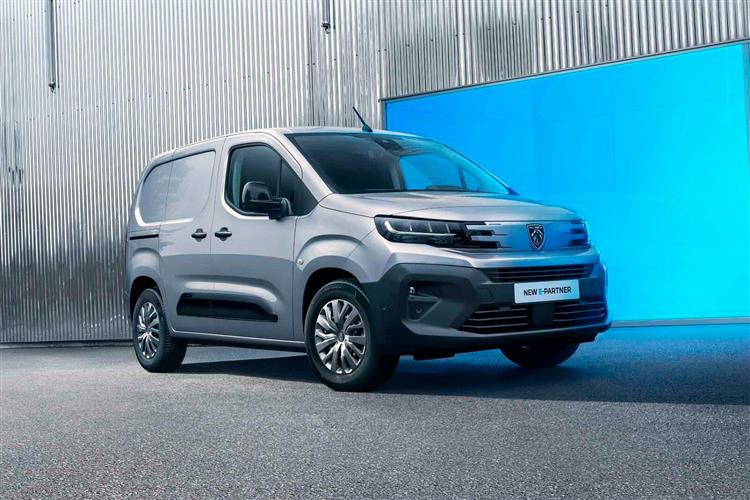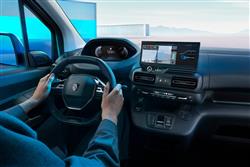BUSINESS PARTNER (some text hidden) --NONE--
By Jonathan Crouch
The improved version of Peugeot third generation Partner is a compact van with high aspirations. Jonathan Crouch drives it.
Ten Second Reviewword count: 66
Peugeot's Partner van is a compact LCV that builds on two decades of ruggedness and practicality with the much improved version of this third generation model. The interior now gets extra screen technology, there's a sharper exterior look and the EV version now goes further. As before, there's a unique 'i-Cockpit' cabin design to set this Peugeot apart from the rival models that share its engineering.
Backgroundword count: 182
Peugeot knows a thing or two about vans, the brand having built well over 2 million LCVs since 1950. This Partner is the company's biggest seller and as we'll see, the updated version of this third generation model has been revitalised. These days, this compact LCV is the entry point to the brand's strong selling van range, a nameplate that first arrived in the segment in 1996, with a second generation version introduced in 2008 and the original take on this third generation model launched in 2018, before getting the updates we looking at here five years further on. This model used to only share its design and engineering with Citroen's Berlingo. Now, it also shares it with Fiat's Doblo, Vauxhall's Combo and Toyota's Proace City too. All rivals that additionally offer the full-electric variant that of course this Partner offers as well. Greater driving range for that E-Partner derivative (now built in the UK at Ellesmere Port) is a key part of this mid-term update. But all Partners get smarter styling and upgraded cabin screen tech. Let's take a closer look.
Driving Experienceword count: 214
As before, the engine range is made up of Peugeot's trusty BlueHDi diesel units. These 1.5-litre diesels are offered in 100hp or 130hp forms, the latter with the option of EAT8 auto transmission. This MK3 model Partner's EMP2 platform enables short overhangs and a small turning circle for easy manoeuvring: the kerb to kerb turning radius is only 10.82m for the Standard version and 11.43m for the Long version. The neat 'i-Cockpit' dashboard design makes this Peugeot feel quite fun to drive too, with its grippy little wheel allowing for wrist-flick turns. The key change made to the engineering of this updated model lies with changes made to the E-Partner EV version, which gains a new 52kWh battery providing for an increased range between charges of up to 213 miles. As before, the battery pack energises a 136hp front-mounted motor with 270Nm of torque. And there's a regenerative braking system that can now be activated at three different levels using steering wheel paddles. Whatever powertrain you decide upon, there's very little about the handling dynamics of this van that encourage you to push it on in any way at all. Instead, development priority has been given to the creation of a supple quality of ride - something daily drivers will probably appreciate rather more.
To see the full road test text contact us on 0330 0020 227
Pictures (high res disabled)

.jpg)
|
.jpg)
|
.jpg)
| |||

|
Statistics (subset of data only)
Min |
Max |
|
Price: |
£23,015.00 (At 2 Jul 2025, Professional BlueHDi 100 Standard) |
£29,975.00 (At 2 Jul 2025, E-Partner inc. PiVG - Asphalt Long) |
CO2 (g/km): |
136 (BlueHDi 100) |
|
Electric WLTP-Rated Driving Range (miles): |
213 |
|
Combined Mpg: |
54.4 (BlueHDi 100) |
|
Length (mm): |
4400 |
|
Width (mm): |
2100 |
|
Height (mm): |
1800 |
1900 |
Power (ps): |
100 (BlueHDi) |
136 (EV) |
Scoring (subset of scores)
Category: Vans
| Performance | |
| Handling | |
| Comfort | |
| Space | |
| Styling, Build, Value, Equipment, Depreciation, Handling, Insurance and Total scores are available with our full data feed. | |



